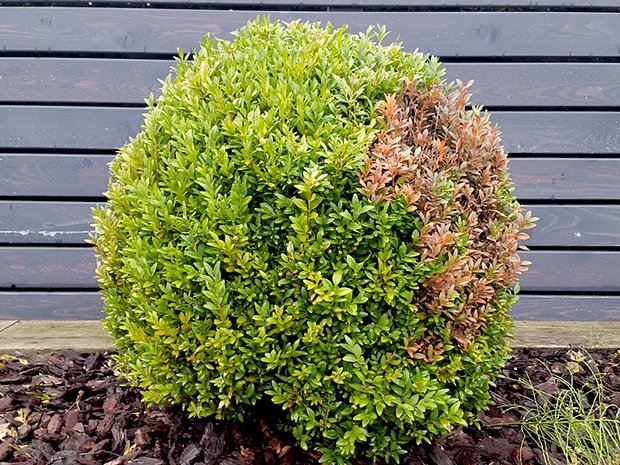
Preventing winter burn on plants in Michigan, is important to ensure the health and vitality of your landscaping. Winter burn occurs when plants lose more moisture through their leaves than they can absorb from the frozen ground. The most common are hollies, rhododendrons, yews and junipers. Here are some steps to help prevent winter burn:
-
Choose the Right Plants: Select cold-hardy plants that are well-suited to Michigan’s climate. Native species and those adapted to your specific USDA hardiness zone will be more resilient against winter conditions.
-
Watering: Properly hydrate your plants in the fall before the ground freezes. Well-hydrated plants are less susceptible to winter burn.
-
Anti-transpirant sprays: Sprays contain polymers that create a clear coating over the surface of the leaves. The coating helps plants retain water, reducing the effects of Winter Burn and keeping them healthy for when spring arrives.
-
Windbreaks: Install windbreaks, such as burlap screens or snow fencing, to shield your plants from harsh winter winds. Wind can increase the rate of moisture loss from plant leaves.
-
Snow Management: Clear heavy snow from evergreen branches to prevent them from bending or breaking.
Consult with Board Certified Master Arborist, Don Churchill to learn more or schedule a spray.
